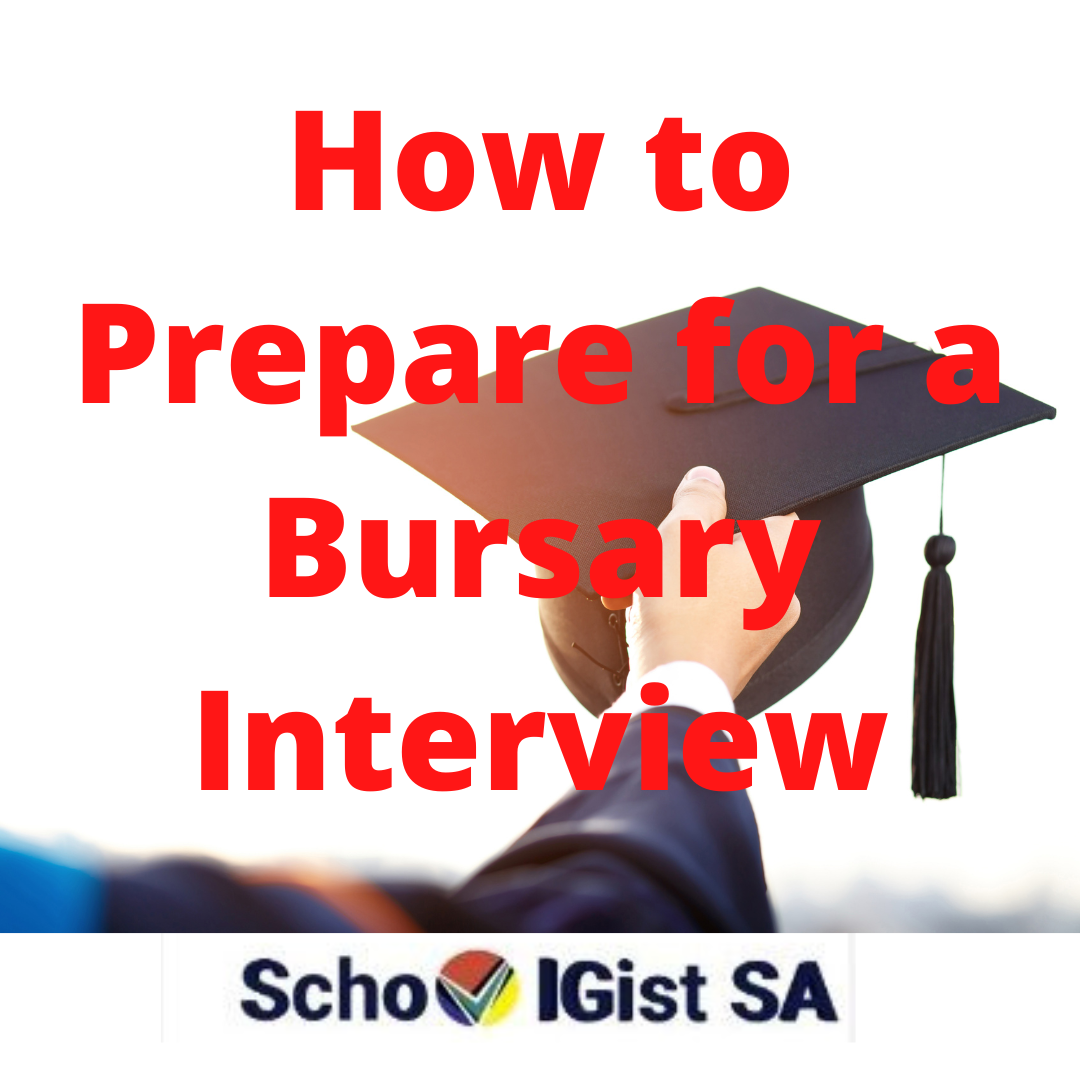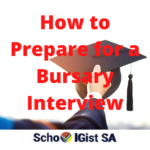
Getting a bursary is one of the ways South African students get to study at higher institutions with no or little fees. Interviews are part of many bursary ways of selecting successful candidates. In this post, we will put you through how to prepare for a bursary interview.
There are a number of steps students have to pass through before getting to the interview stage, congratulation if you get to the interview stage.
CHECKOUT OUR TIPS ON SUBMITTING A SUCCESSFUL BURSARY APPLICATION
Knowing the details about the bursary programme you are applying for is your first step to having a good interview. As applicants, do detailed research on the bursary programme. You should understand the requirements and keep a copy of all the documents you submit for reference.
Applicants should also research the bursary provider, you can do this by visiting the bursary website to read the ‘About Us’ section. This will give you an understanding of the bursary goals, priority, mission and vision; and what they are looking for in a successful candidate.
We will provide you with some of the questions you can be asked during the interview in this post. You can use these questions to prepare for your interview. You should consider the best answer that fit the question based on the bursary you are applying for.
The applicant should think about things like what would be an appropriate response to a detailed question. Candidates should make sure their comments are clear and confident, and they should avoid being ambiguous.
Although preparation is essential, the candidate should also watch out for robotic or scripted responses. In addition to showcasing your abilities and expertise, an interview provides a chance to demonstrate your spontaneity and unforced reactions to inquiries. By rehearsing with a buddy, the applicant can find the “sweet spot” between preparation and spontaneity.
The below application questions will give applicants an understanding of what could be asked during the interview and plan on the best answer. The applicant should also get ready and learn what questions they would want to ask the provider; doing so will help them comprehend the program better and learn some more details.
COMMON QUESTIONS ASKED DURING A BURSARY INTERVIEW
- Tell us about yourself.
- What personal achievement makes you the proudest?
- What is your greatest strength?
- What is your greatest weakness?
- What kind of activities do you partake in and enjoy?
- How would others (friends, teachers, etc.) describe you?
- Why did you choose your particular course?
- Why do you want to study at your selected institution?
- What is a mistake you have made, how did you overcome it and what did you learn from it?
- What are your life goals?
- Where do you see yourself in the future (5 to 10 years from now)?
- How do you plan to make use of the bursary award?
- Why do you deserve to be selected for the bursary?
- What can you do for our organisation (what contribution can you make)?
QUESTIONS CANDIDATE CAN ASK DURING THE BURSARY INTERVIEW
- What does your organisation aim to achieve by offering this bursary?
- What are some additional programmes that your organisation support to reach its goals?
- How can I get involved in these additional programmes?
- What are the characteristics you are looking for in the perfect candidate?
- Does the bursary provide any other academic resources?
- Does your organisation sponsor programmes that allow applicants to connect with alumni or offer potential job placements?
- Does the organisation provide resources or opportunities once the applicant has graduated?
Ensure that you do the research on the organisation or institution before the interview as some of these answers could be available on their company website
TIPS FOR THE FACE-TO-FACE BURSARY INTERVIEW
- Be punctual
- Give a firm hand-shake and smile
- Keep calm
- Be yourself (be honest)
- Maintain eye contact at all times
- Breathe and allow yourself time to speak
- Avoid words such as “like” and “um”
- Listen and think before your speak
- Be clear and concise with your responses
- Stay on topic (avoid rambling)
- Enunciate your words clearly (avoid mumbling)
- Act in conduct as if you ARE the candidate they are looking for
- End the meeting on a high
- Shake hands with everyone, look them in the eye, and thank them
- Let them know that you are available for a follow-up interview and questions
- Be proud of yourself and your hard work


Leave a Reply